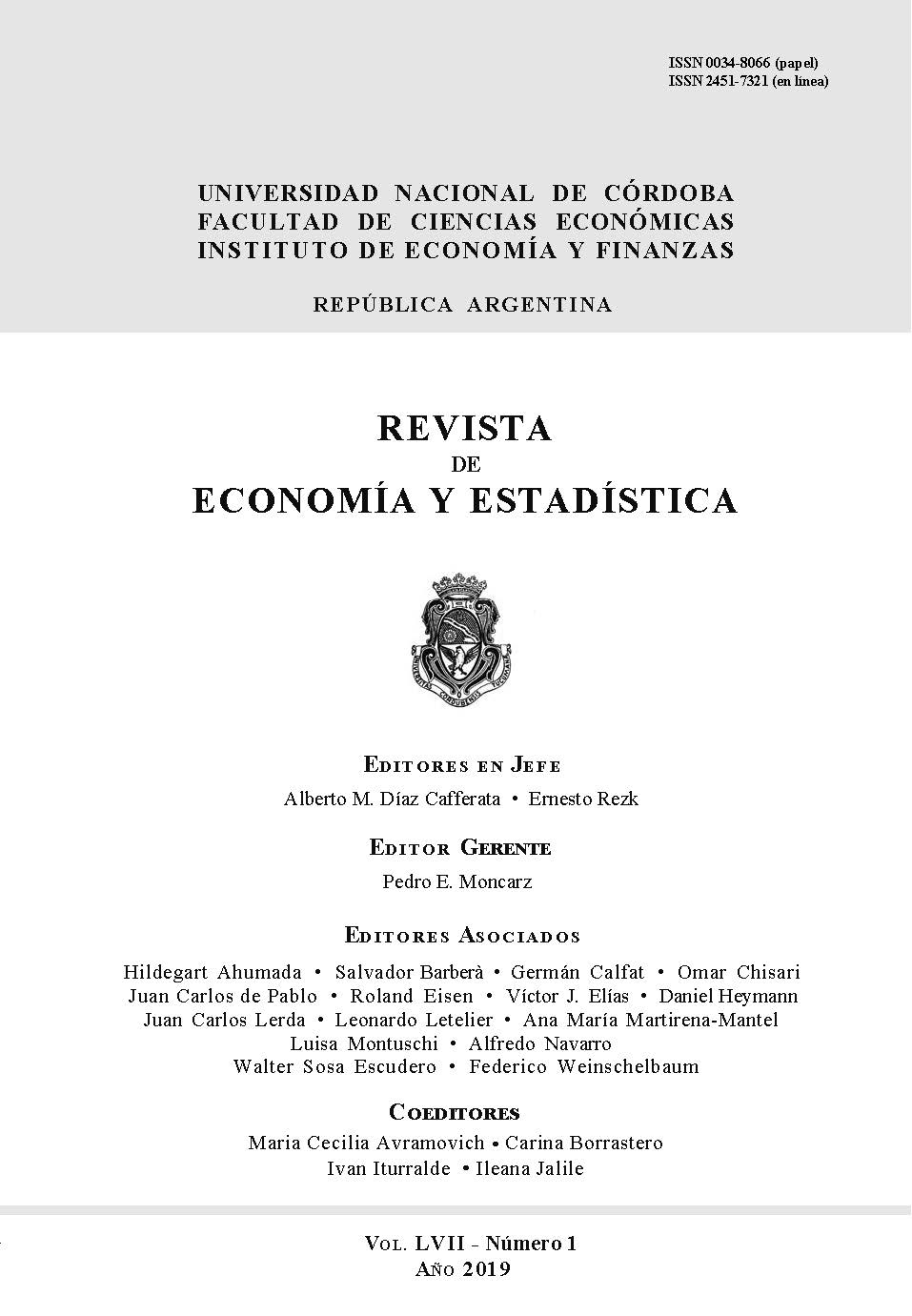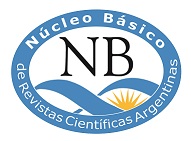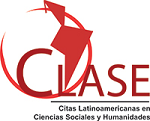Disclosure Behavior of GRI – G4 Indicators in Sustainability Reports of Companies in the Agriculture Sector
DOI:
https://doi.org/10.55444/2451.7321.2019.v57.n1.31311Keywords:
disclosure of sustainability reporting , global initiative reporting, companies, agricultureAbstract
Despite the increase in the dissemination of Global Initiative Reporting (GRI) Sustainability Reports (SR) by companies worldwide, and specifically in the agricultural sector, there are warnings about the use of these reports as a means to legitimize the corporate image without transforming practices in the relationship with nature and society. In this scenario, this research aims to analyse the trends of dissemination of GRI G4 indicators until 2016 in companies of the agricultural sector registered in the GRI Database (BDGRI), being this an important activity for mankind due to the production of food and raw materials, but at the same time responsible for the generation of negative impacts. The methodology used was quantitative, using the following techniques: principal component analysis (PCA) and clustering. The results show that the behavior of indicator dissemination in the agricultural sector is dispersed, showing some trends according to size. In general, the trend of the sector is to disclose few indicators, especially human rights and environmental performance.
Date received: February 10, 2019
Acceptance date: July 2, 2019
Downloads
References
Alan, A., Góis, D., Martins, M., De Luca, M., & Carvalho De Vasconcelos, A. (2015). Determinantes da divulgação dos indicadores de desempenho da GRI nas empresas do Brasil e da Espanha. Ambiente Contábil, 7(1), 155–175.
Azcárate, F., Carrasco, F., & Fernández, M. (2011). The role of integrated indicators in exhibiting business contribution to sustainable development: a survey of sustainability reporting initiatives. Revista de Contabilidad, 14, 213–240.
Azcárate, F., Fernández, M., & Carrasco, F. (2015). Memorias de sostenibilidad e indicadores integrados: análisis exploratorio sobre características definitorias. Una reflexión crítica. Innovar, 25(56), 83–98. https://doi.org/10.15446/innovar.v25n56.48992
Bebbington, J., & Larrinaga, C. (2014). Accounting and sustainable development: An exploration. Accounting, Organizations and Society, 39(6), 395–413. https://doi.org/10.1016/j.aos.2014.01.003
Castelló, I., & Lozano, J. M. (2011). Searching for New Forms of Legitimacy Through Corporate Responsibility Rhetoric. Source Journal of Business Ethics, 100(1), 11–29.
Díaz Monroy, L. G., & Morales Rivera, M. A. (2015). Análisis estadístico de datos multivariados. Universidad Nacional de Colombia.
Fernández, M., & Larrinaga González, C. (2007). Memorias de sostenibilidad: responsabilidad y transparencia. Contaduría Universidad de Antioquia, 51, 89–104.
Gómez-Contreras, J. L., Niño Galeano, C. L., & Rojas-Gómez, J. C. (2012). La información de las cuentas satélite de ambiente emitida en Colombia (1995 – 2010): Una revisión crítica. Revista Facultad de Ciencias Económicas, 20(1), 143–169.
Gómez, M., & Quintanilla, D. A. (2012). Los informes de responsabilidad social empresarial: su evolución y tendencias en el contexto internacional y colombiano. Cuadernos de Contabilidad, 13(32), 121–158.
Gray, R., Kouhy, R., & Lavers, S. (1995). Corporate social and environmental reporting A review of the literature and a longitudinal study of UK disclosure. Accounting, Auditing & Accountability Journal, 8(2), 47–77. https://doi.org/10.1108/09513579510146996
GRI - Global Reporting Initiative. (2013). Guía para la elaboración de memorias de sostenibilidad. G4. https://www.globalreporting.org/resourcelibrary/Spanish-G4-Part-One.pdf
Hahn, R., & Lülfs, R. (2014). Legitimizing Negative Aspects in GRI-Oriented Sustainability Reporting: A Qualitative Analysis of Corporate Disclosure Strategies. Journal of Business Ethics, 123, 401–420. https://doi.org/10.1007/s10551-013-1801-4
Lebart, L., Morineau, A., & Piron, M. (1995). Statistique exploratoire multidimensionnelle. Dunod.
Milne, M. J., & Gray, R. (2013). W(h)ither Ecology? The Triple Bottom Line, the Global Reporting Initiative, and Corporate Sustainability Reporting. Journal of Business Ethics. https://doi.org/10.1007/s10551-012-1543-8
Milne, M. J., & Grey, R. (2013). W(h)ither Ecology? The Triple Bottom Line, the Global Reporting Initiative, and Corporate Sustainability Reporting. Source Journal of Business Ethics, 118(118), 13–2913.
Naciones Unidas. (2016). Objetivos de Desarrollo Sostenible. https://www.un.org/sustainabledevelopment/es/hunger/
Pinheiro Machado, L. C., & Pinheiro Machado Filho, L. C. (2016). Dialéctica de la agroecologia. Editora Expressão Popular.
Primavesi, A. (2002). Manejo ecológico do solo: a agricultura em regiões tropicais. NBL Editora.
R Core Team. (2017). R: A Language and Environment for Statistical Computing. https://www.R-project.org/.
Sanz, C., & González, J. (2010). las memorias de sostenibilidad y su divulgación. Contaduría Universidad de Antioquia, 57, 107–118.
Tregidga, H., Milne, M., & Kearins, K. (2014). (Re)presenting “sustainable organizations.” Accounting, Organizations and Society. https://doi.org/10.1016/j.aos.2013.10.006
Valero Zapata, G. M. (2015). Evolución y tendencias de las memorias de sostenibilidad desde la perspectiva contable, a partir de la revisión del contexto colombiano (Publication No. 52960373) [Tesis de Maestría, Universidad Nacional de Colombia]. Biblioteca Digital Universidad Nacional de Colombia.
Veleva, V., Hart, M., Greiner, T., & Crumbley, C. (2003). Indicators for measuring environmental sustainability. Benchmarking: An International Journal, 10(2), 107–119. https://doi.org/10.1108/14635770310469644
Willis, A. (2003). The Role of the Global Reporting Initiative’s Sustainability Reporting Guidelines in the Social Screening of Investments. Journal of Business Ethics, 43(3), 233–237.
Downloads
Published
Issue
Section
License
Copyright (c) 2019 July Carolina Rojas Gómez, Claudia Lucia Niño Galeano, Sergio David Solano Bejarano

This work is licensed under a Creative Commons Attribution-NonCommercial-NoDerivatives 4.0 International License.
Authors who have publications with this journal agree to the following terms:
Authors retain their copyright and grant the journal the right of first publication of their work, which is simultaneously subject to the Creative Commons Attribution-NonCommercial-NoDerivatives 4.0 International License that allows third parties to share the work provided that its author and first publication in this journal are indicated.
Authors may adopt other non-exclusive licensing arrangements for distribution of the published version of the work (e.g. depositing it in an institutional telematic archive or publishing it in a monographic volume) as long as the initial publication in this journal is indicated.
Authors are allowed and encouraged to disseminate their work via the Internet (e.g. in institutional telematic archives or on their website) before and during the submission process, which can lead to interesting exchanges and increase citations of the published work. (See The Open Access Effect)














